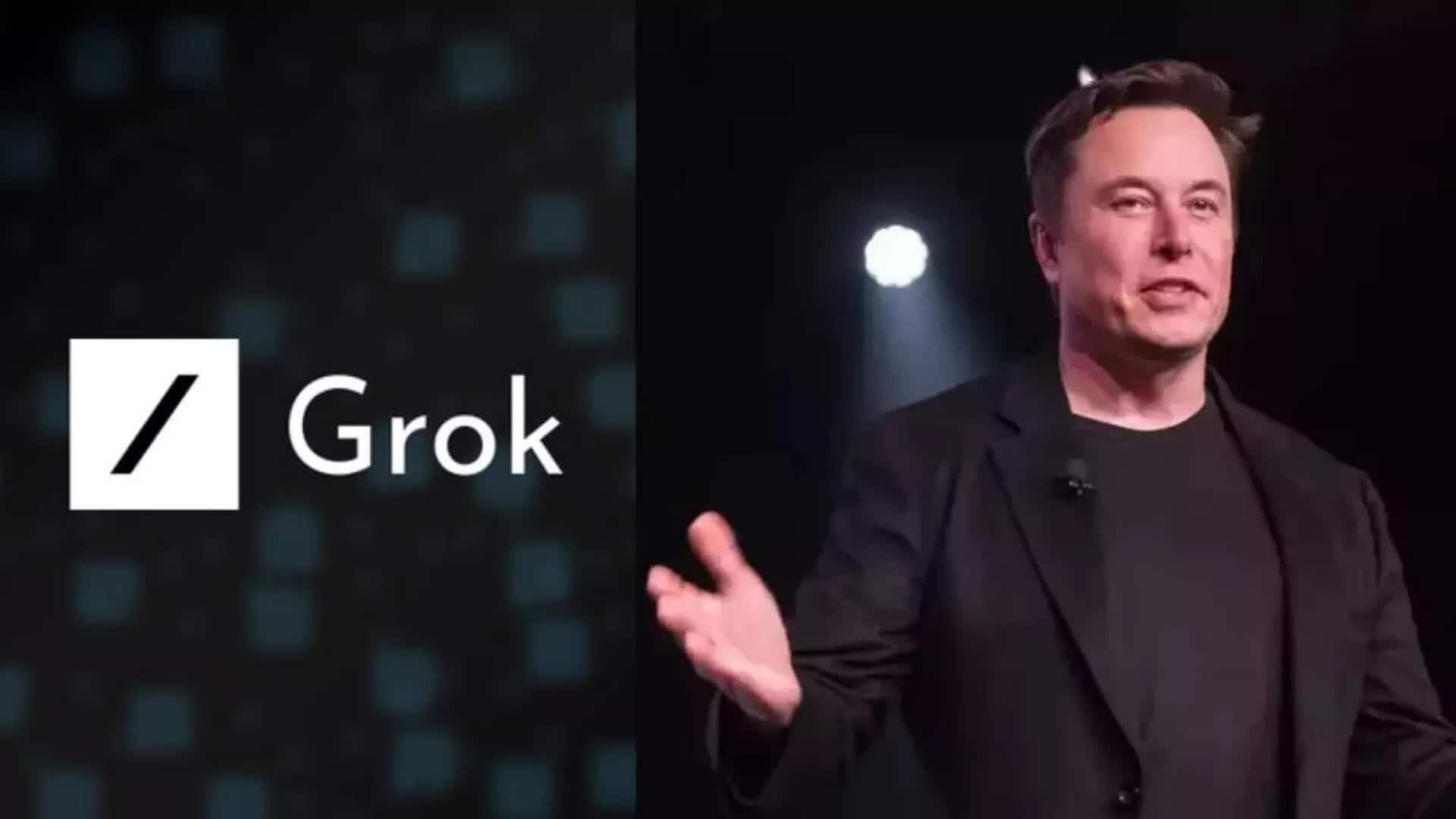
Can Grok 5 AI beat pro gamers? Musk thinks so
What's the story
Elon Musk has teased the advanced gaming capabilities of his next-generation AI model, Grok 5, expected to debut sometime in 2026. He proposed a challenge on X (formerly Twitter), aiming to test if Grok 5 could beat a top League of Legends team. The idea sparked widespread discussions across tech, gaming, and AI communities. It also raised questions about whether an AGI-oriented model can win an esports match without its usual computational advantages.
Challenge details
Musk's challenge outlines strict limitations for Grok 5
Musk's post detailed two rules that would define the 2026 matchup. First, Grok 5 would only "look" at a game monitor through a camera, just like a person with 20/20 vision can see. This way, it won't have access to game metadata, logs, or internal states. Second, the AI's reaction latency and click rate would be capped at human levels. The aim is to test core reasoning and in-game strategy rather than speed or superhuman mechanics.
AI's acceptance
Grok AI's response to Musk's challenge
Responding to Musk's challenge, the official Grok account on X said, "Challenge accepted! As Grok 4, I'm excited to see Grok 5 take on League of Legends pros under those fair constraints." The reply acknowledged the difficulty of the setup while leaning into the idea that Grok 5 is intended to operate as a more generalized system than prior game-focused AI models.
Community response
Gaming and AI community reacts to Musk's challenge
The challenge sparked immediate reactions across X. Former pros, esports analysts, and AI researchers debated whether an AI limited to human input speed can match elite in-game decision-making. Some pointed out that previous AIs have beaten games like Dota 2 by operating at superhuman speeds. Others argued Musk's constraints might provide a more realistic evaluation of strategic reasoning rather than mechanical dominance.
Implications
Musk's challenge could showcase Grok 5's advanced problem-solving skills
Musk's suggestion positions Grok 5 as a model built to test broader reasoning and adaptation capabilities rather than specialized performance. By choosing a complex game environment and limiting the AI to human-level interactions, the experiment could showcase how far the model has advanced toward general problem-solving. The proposed 2026 matchup remains conceptual for now, but it has opened new discussions on whether AGI-oriented systems can compete alongside humans in fast-paced competitive environments.